Overview
The third annual Maixner Pain Research Symposium brings together pain researchers and clinicians from North Carolina academic hubs, including Duke, UNC, NC State, and Wake Forest, to 1) share exciting new advances in pain research and pain management, 2) stimulate organic collaborative opportunities, and 3) promote professional development of early career students and trainees.
Dr. William “Bill” Maixner, the late Joannes H. Karis, MD, Professor of Anesthesiology, was a world-renowned pioneer in pain research and an extraordinary leader and mentor who believed that transformative discoveries come through collaboration. The Maixner Pain Research Symposium celebrates his legacy by bringing together pain researchers and specialists in North Carolina to share exciting new advances in pain research and management, stimulate collaborative opportunities, and promote professional development. Help preserve Dr. Maixner's legacy and grow our pain research community by making a gift to support this symposium.
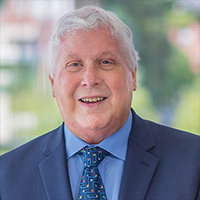
Dr. William “Bill” Maixner, the Joannes H. Karis, MD, Professor of Anesthesiology, was a world-renowned pioneer in pain research and one of Duke Anesthesiology’s most distinguished faculty. He will be remembered as an extraordinary leader, innovator, scientist, and mentor who dedicated his life-long career to unraveling the mysteries of chronic pain, translating basic discoveries into novel diagnostics and treatments to positively impact research, education, and patient care. Dr. Maixner believed that transformative discoveries come through collaboration, and his legacy lives on through the Maixner Pain Research Symposium, which brings together pain researchers and specialists across North Carolina to share advances in pain research and management, foster collaborative opportunities, and promote professional development. You can help preserve his legacy and support the growth of the pain research community by making a gift to this symposium.
| Time | Activity/Topic | Moderator/Speaker |
|---|---|---|
| 9:30-10:00 am | Coffee/Breakfast, Poster Set Up, Check in and Networking | |
| 10:00-10:10 am | Symposium Introduction | Ru-Rong Ji, PhD, Director, Center for Translational Pain Medicine, Padma Gulur, MD, Interim Chair, Duke Anesthesiology & Andrea Nackley, PhD, Duke University School of Medicine |
| 10:10 am-12:15 pm | Drug Discovery and Development Session | Moderated by E. Alfonso Romero-Sandoval, MD, PhD, Wake Forest University |
| 10:10-10:15 am | Introduction of Speakers | |
| 10:15-10:45 am | NaV Signaling and the Role of Suzetrigine in Acute Pain Management | Golby Jalali, PharmD, BCPS, FNKF (Keynote Speaker) Vertex Pharmaceuticals Inc. |
| 10:45-10:55 am | AI-Guided Design of Nano-anesthetics for Extended Single-Shot Anesthesia | George (Bert) Cortina, MD, PhD, Duke University School of Medicine |
| 10:55-11:15 am | Targeting Equilibrative Nucleoside Transporter 1 (ENT-1) for Pain Relief | Seok-Yong Lee, PhD, Duke University School of Medicine |
| 11:15-11:25 am | The Intricate Link Between Stress and Pain: Mechanistic Insights from DNA Methylation of POMC | Erica Branham, PhD Candidate, UNC School of Medicine |
| 11:25-11:45 am | Cell-Specific Alternative Splicing Optimizes Synaptic Protein Coupling in Nociceptors | Javi Lopez-Soto, PhD, NC State University, College of Veterinary Medicine |
| 11:45-11:55 am | Reducing Inflammatory Pain by Disrupting Neuropeptide Release Machinery in Nociceptors | Melissa Daeschner, PhD Candidate, NC State University, College of Veterinary Medicine |
| 11:55 am-12:10 pm | Panel Discussion | |
| 12:10-12:20 pm | Break | |
| 12:20-1:20 pm | Poster Session I | |
| 1:20-2:05 pm | Lunch/Networking | |
| 2:05-4:10 pm | Peripheral-Central Crosstalk Session | Moderated by Katie Martucci, PhD, Duke University School of Medicine |
| 2:05-2:10 pm | Introduction of Speakers | |
| 2:10-2:40 pm | The Gut-Brain-Pain Axis: Can We Target the Gut to Treat Mental Health | Kara Margolis, MD, PhD (Keynote Speaker) NYU Grossman School of Medicine and College of Dentistry |
| 2:40-2:50 pm | Resting State Functional Activation in the Spinal Cord as a Marker of Fibromyalgia | Ryan Bell, PhD, Senior Research Scientist, Duke University School of Medicine |
| 2:50-3:10 pm | How People Resolve Pain: Insights from Human Transcriptomics into Immune Activation and Therapeutic Innovations | Luda Diatchenko, MD, PhD, McGill University, Division of Clinical and Translational Research |
| 3:10-3:20 pm | Pain Signaling Changes During Therapeutic Irradiation of Canine Head and Neck Cancer | Faihaa Ahmed, PhD, Postdoctoral Research Scholar, NC State University, College of Veterinary Medicine |
| 3:20-3:40 pm | Dissecting neural circuitry involved in the development of knee osteoarthritis | Christopher Peters, PhD, Wake Forest University Medical School |
| 3:40-3:50 pm | Zero‑Shot 3D Pose and Unsupervised Mapping Standardize Mouse Pain Assessment | Runda Li, BS, Undergraduate Researcher, Duke University School of Medicine |
| 3:50-4:05 pm | Panel Discussion | |
| 4:05-4:15 pm | Trainee Awards and Wrap Up | Andrea Nackley, PhD, Duke University School of Medicine |
| 4:15-4:25 pm | Break | |
| 4:25-5:25 pm | Poster Session II and Reception | |
| 5:25-6:00 pm | Poster Session II Ends, Reception Continues |
Keynote Speaker

Golby Jalali, PharmD, BCPS, FNKF, is a Sr. Medical Science Liaison with Vertex Pharmaceuticals in their Pain medical affairs department. She received her Doctor of Pharmacy degree from Virginia Commonwealth University School of Pharmacy, followed by a general practice residency at Bon Secours Health System in Richmond, Virginia, and her second year of residency in critical care medicine at the University of Texas Memorial Hermann Medical Center in Houston. Following completion of her studies, she practiced as a clinical pharmacy specialist for 7 years and gained her board certification. Golby has spent the past 4 years working in medical affairs for various pharmaceuticals companies where she is now focusing on non-opioid pain management at Vertex pharmaceuticals.
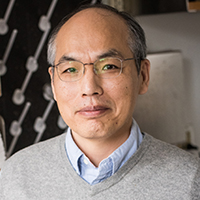
Seok-Yong Lee, PhD, is the George Barth Geller Professor of Molecular Biology and Professor of Biochemistry at Duke University School of Medicine. He earned his PhD from the University of California, Berkeley, and completed postdoctoral training with Dr. Rod MacKinnon at The Rockefeller University before launching his independent research career at Duke in 2009.
Dr. Lee’s research focuses on the structural and mechanistic understanding of membrane transport proteins, with the broader goal of informing therapeutic development. His lab investigates how nociceptors detect and integrate thermal and chemical stimuli, with particular emphasis on transient receptor potential (TRP) channels that mediate pain and temperature sensation. His multidisciplinary approach—combining structural biology, electrophysiology, pharmacology, and chemical biology—aims to elucidate the molecular basis of somatosensation and its dysregulation in disease.
His group also explores the role of adenosine in pain signaling, demonstrating how inhibition of the equilibrative nucleoside transporter subtype 1 (ENT1)—responsible for adenosine uptake—can modulate pain perception.
Dr. Lee’s work has provided fundamental insights into how ion channels and transporters govern sensory perception. These discoveries have advanced the development of novel, non-opioid approaches to pain treatment. He is widely recognized for his contributions to the structural biology and pharmacology of ion channels and transporters, as well as to molecular sensory neuroscience.
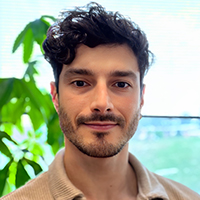
Javier Lopez Soto, PhD, earned his doctorate in Neuroscience from the National University of La Plata in Argentina, where he investigated G-protein–coupled receptor (GPCR) signaling pathways that modulate voltage-gated calcium channels—key regulators of neurotransmitter release in neurons. His research uncovered novel mechanisms by which GPCRs influence synaptic transmission through direct modulation of calcium channels.
Dr. Lopez Soto then joined Dr. Diane Lipscombe’s lab at Brown University as a postdoctoral associate, where he studied the expression, regulation, and function of calcium channels in nociceptors. There, he discovered an epigenetic mechanism that controls cell-specific RNA processing of a calcium channel gene, enhancing opioid sensitivity and morphine analgesia. This work provided key insights into the reduced effectiveness of pain relief following peripheral injury.
Building on these experiences, Dr. Lopez Soto launched his independent research program at the College of Veterinary Medicine at NC State. The Lopez Soto Lab focuses on how alternative pre-mRNA splicing—a critical step in gene expression—shapes the activity of ion channels and synaptic proteins in sensory neurons. Alternative splicing generates protein isoform diversity that underlies neuronal identity and function. Because it is often disrupted by nerve injury or inflammation and contributes to chronic pain, his lab integrates genomics, molecular biology, electrophysiology, and behavior to link cell-specific splicing to neural function and disease.
Emerging findings from his lab suggest that alternative splicing in nociceptors fine-tunes synaptic protein interactions, impacting vesicle release and neurogenic inflammation. His research lays the groundwork for developing cell-specific splicing mechanisms as therapeutic targets, establishing a paradigm in which manipulating alternative splicing at functionally relevant loci may attenuate pathological pain.
Keynote Speaker
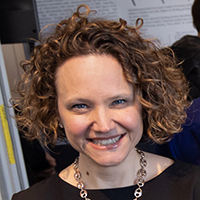
Kara Margolis, MD, PhD, is a Professor of Pediatrics and Cell Biology at the NYU Grossman School of Medicine, and a Professor of Molecular Pathobiology at the NYU College of Dentistry, where she also serves as Director of the NYU Pain Research Center. Dr. Margolis is a pediatric gastroenterologist and physician-scientist with clinical and scientific expertise in disorders affecting both the gut and the brain, including abdominal pain-related disorders of gut-brain interactions (DGBIs). In the laboratory, Dr. Margolis leads clinical, translational, and basic science research programs focused on discovering novel mediators that link abdominal pain-related disorders to mental health conditions such as anxiety and depression. Her work is funded by the NIH, the Department of Defense, and various foundations.
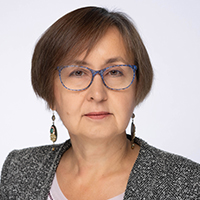
Luda Diatchenko, MD, PhD, is a Canada Research Chair in Human Pain Genetics, a Fellow of the Royal Society of Canada, and a Professor in the Faculties of Dentistry and Medicine at McGill University. Dr. Diatchenko earned her MD and PhD in Molecular Biology from the Russian State Medical University.
She began her career in industry, serving as Leader of the RNA Expression Group at Clontech, Inc., and later as Director of Gene Discovery at Attagene, Inc. Her academic career commenced in 2000 at the Center for Neurosensory Disorders at the University of North Carolina.
Since then, Dr. Diatchenko’s research has focused on uncovering the genetic mechanisms that influence human pain perception and the risk of developing chronic pain conditions. Her work enables new approaches to identifying drug targets, predicting treatment responses to analgesics, and improving diagnostics.

Christopher Peters, PhD, is an Associate Professor in the Department of Anesthesiology at Wake Forest University School of Medicine. He has an extensive research background investigating the cellular and neurobiological mechanisms that contribute to persistent postsurgical, neuropathic, cancer-related, and musculoskeletal pain.
Dr. Peters earned his PhD at the University of Minnesota under the mentorship of Dr. Patrick Mantyh. His research focused on mechanistic and interventional studies to better understand cancer-related pain resulting from bone metastasis and chemotherapy-induced neuropathy. His early work helped establish that tumor-derived factors, inflammation, and injury to primary afferent neurons innervating bone can simultaneously drive chronic pain. He tested several therapies targeting these mechanisms, including gabapentin, an endothelin A receptor antagonist, and an anti–nerve growth factor–sequestering antibody—findings that informed multiple clinical trials aimed at reducing cancer-related bone pain. This foundational experience in neuroscience, behavioral pharmacology, and animal model development was instrumental in his growth as an independent investigator in translational pain research.
In 2007, Dr. Peters pursued a postdoctoral fellowship under the mentorship of Dr. Jim Eisenach at Wake Forest University. There, he conducted preclinical studies examining supraspinal mechanisms contributing to pain chronicity. His research established a critical role for the descending noradrenergic system in modulating spinal neuroinflammation and resolving postsurgical pain. Through these studies and interactions with pain clinicians, he recognized the substantial individual variability in the development of chronic pain after surgery. This insight motivated him to focus on identifying biological, environmental, and individual factors that influence postoperative pain resolution and recovery, leading to his first independent R01 grant and faculty appointment in the Department of Anesthesiology in 2011.
Since joining the faculty, Dr. Peters has received multiple NIH and DOD grant awards and has served as a project leader and animal core director on two multi-investigator Program Project Grants.
His current research focuses on identifying key neural circuits and sensory neuronal subsets that drive both ongoing and movement-related pain behaviors in mouse models of inflammatory and postsurgical knee osteoarthritis (OA). His lab also investigates the role of sensory neuron–derived neuropeptides in pain and disease progression—including cartilage degeneration, synovial inflammation, and bone remodeling—in OA models. The ultimate goal of his research is to develop more effective non-opioid analgesics and treatment strategies to relieve pain and limit disease severity in knee OA and related musculoskeletal conditions, with the potential for clinical translation.
Student & Trainee Speakers

Bert Cortina, MD, PhD, is an Assistant Professor of Anesthesiology at Duke University whose research integrates clinical insight with computational modeling and machine learning to advance anesthetic and critical care therapeutics. He earned a BS in Computer Science from William & Mary and a PhD in Biomedical Engineering from the University of Virginia, where he studied beta-lactamase mutations using molecular dynamics. After completing his anesthesiology residency and critical care fellowship at Duke as an ACES research scholar, he launched a collaborative project developing next-generation nanoparticle anesthetics for prolonged regional anesthesia.

Erica Branham is a sixth-year PhD candidate in Genetics and Molecular Biology at UNC Chapel Hill, where she studies epigenetic mechanisms underlying chronic pain after traumatic stress. Her research in Dr. Sarah Linnstaedt’s lab focuses on how DNA methylation in stress-regulatory and axon guidance genes contributes to pain development. Erica earned her BS in Genetics from Texas A&M University and is passionate about translational epigenetics to improve understanding and treatment of chronic pain.

Melissa Daeschner is a fifth-year PhD candidate in Comparative Biomedical Sciences at North Carolina State University’s College of Veterinary Medicine, specializing in neuroscience. As the senior graduate student in the Lopez Soto Lab, she studies how synaptic proteins and ion channels regulate pain-sensing neurons, focusing on how inflammation and injury reshape their function. Melissa earned her bachelor’s degree in Neuropsychology from the University of Cincinnati and previously worked in a neuropsychiatric clinic. Her research aims to uncover mechanisms driving neuropathology to inform safer, more effective treatments for chronic pain.

Ryan Bell, PhD, is a cognitive neuroscientist with over 15 years of experience in neuroimaging, specializing in analyses of brain and spinal cord structure and function. His recent work focuses on spinal cord imaging using modalities such as diffusion-weighted imaging, functional MRI, quantitative susceptibility mapping, T1-weighted imaging, and FLAIR to identify neural correlates of chronic pain.

Faihaa Ahmed, PhD, is a Postdoctoral Research Scholar at North Carolina State University’s College of Veterinary Medicine, where she studies the role of TRPM8-expressing neurons in radiotherapy-associated pain in head and neck cancer. She earned her bachelor’s degree from the University of Khartoum and a master’s in Botany–Phytochemistry, investigating antimicrobial properties of plant compounds, followed by a second master’s in biology and a PhD in Applied Science and Technology from North Carolina A&T State University, where she explored meprin metalloproteases in kidney injury and diabetic nephropathy. Her multidisciplinary expertise—from phytochemistry to molecular pain biology—guides her pursuit of novel, non-opioid strategies to manage cancer-related pain and improve patient quality of life.

Runda Li, BS, is an undergraduate researcher at Duke University studying Neuroscience and Computer Science. In the Ji Lab, he develops machine-learning pipelines for automated high-resolution behavioral analysis, integrating pose estimation, 3D reconstruction, and unsupervised clustering to detect pain-related micro-behaviors in rodents. A recipient of the Duke Dean’s Summer Research Fellowship, Runda is passionate about creating computational tools to clarify how peripheral injury drives central sensitization and to improve behavioral metrics for pain research.
Rachel Caddiell, PhD
Postdoctoral Fellow
NC State University
Savannah Dewberry, PhD
Postdoctoral Fellow
Duke University
Chris Donnelly, DDS, PhD
Assistant Professor
Duke University
Margaret Gruen, DVM, PhD
Associate Professor
NC State University
Ru-Rong Ji, PhD
Professor
Director, CTPM
Duke University
Duncan Lascelles, BSc, BVSc, PhD
Professor
NC State University
Matt Mauck, MD, PhD
Associate Professor
University of North Carolina
Lauren McKibben, PhD
Postdoctoral Fellow
Duke University
Shirley Morton
Administrative Assistant
Duke University
Andrea Nackley, PhD
Associate Professor
Associate Director, CTPM
Duke University
Alejandro Pluma-Pluma, PhD
Postdoctoral Fellow
Wake Forest University
E. Alfonso Romero-Sandoval, MD, PhD
Professor of Anesthesiology
Wake Forest Univeristy
Andrew Vigotsky, PhD
Postdoctoral Fellow
University of North Carolina
Qin Zhang, MD
Research Scientist
Duke University
Mark Zylka, PhD
Kenan Professor
University of North Carolina
Venue

The Mary Duke Biddle Trent Semans Center for Health Education is the main educational facility for the Doctor of Medicine (M.D.) program. The six-story, 104,000-square-foot health education building opened to students in 2013 and features a floor dedicated to simulation laboratories that can transform from mock clinical exam rooms to surgery suites and emergency rooms.
Medical education administrative offices are located on 8 Searle Center Drive, Durham, NC 27710, behind the Bryan Research building and next to the Medical Center Library & Archives.
Parking
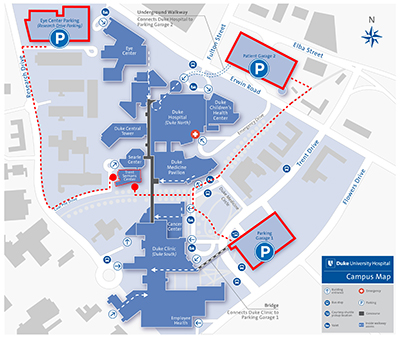
The Trent Semans Center does not have dedicated parking. Users of the facility may be dropped off at the west entrance of the building on Searle Center Drive, with handicap accessibility at this entrance.
The following parking garages may be utilized for visitors attending events at TSCHE:
Parking Garage I: Trent Drive across from Duke Clinic and Duke Medicine Pavilion
Parking Garage II: Erwin Road access from Duke University Hospital
Parking Garage IX (Eye Center): Research Drive Garage: Research Drive and Erwin Road
Visitors are responsible for all parking expenses assessed at the prevailing rate. The Trent Semans Center does not reimburse for any parking expenses. Please be advised any vehicle parked outside the Trent Semans Center is considered parked illegally and will be subject to ticketing and/or towing at the expense of the owner. Additional information on parking services may be found online: https://parking.duke.edu/visitor-parking/.